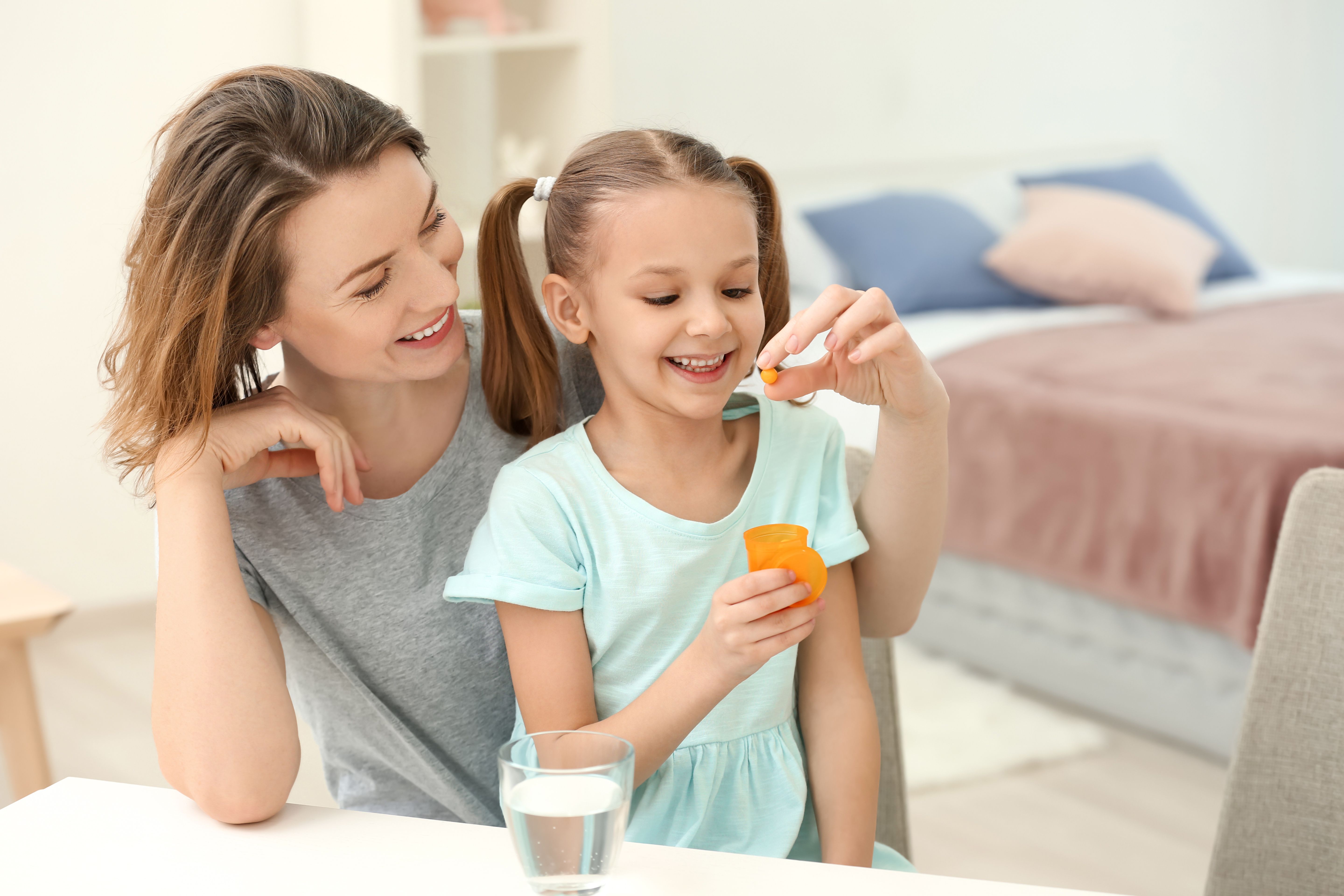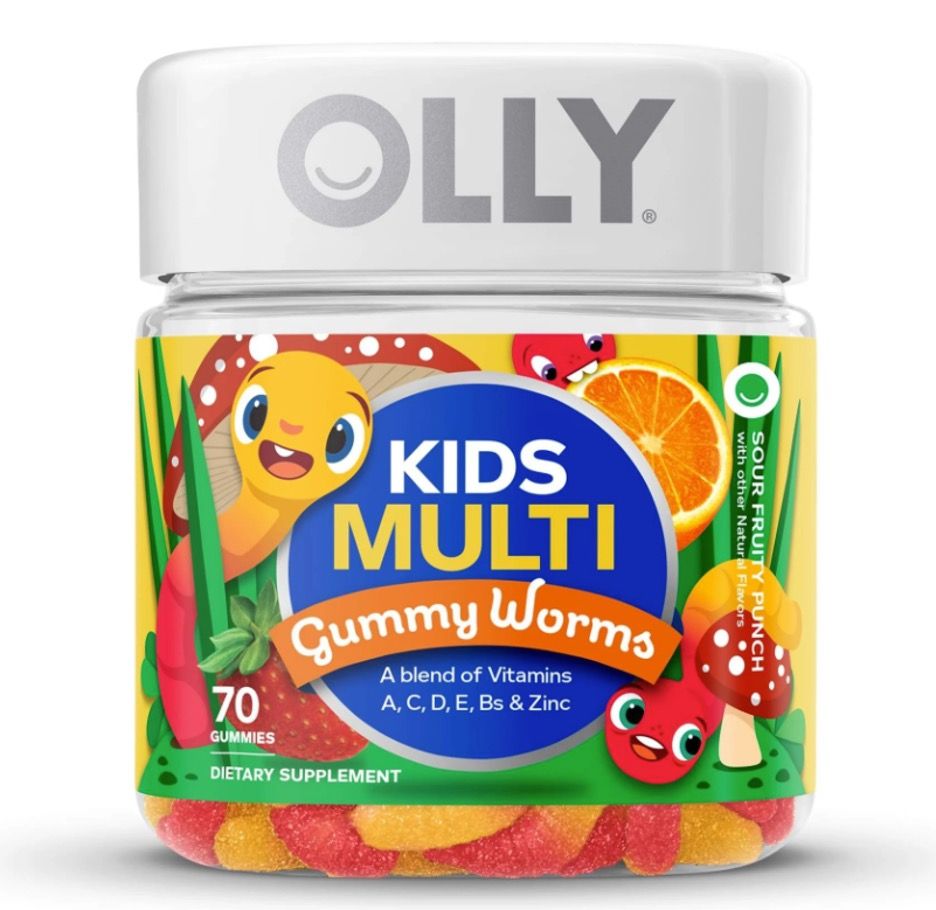Ingredient innovation is on the rise for children and infant nutrition products, dietary supplements
Health-conscious parents are demanding more from children’s nutrition products, driving manufacturers to innovate.
Photo © AdobeStock.com/Pixel-Shot

The children’s nutrition market is evolving as discriminating parents educate themselves about product benefits and efficacy. In addition to wanting to give their children the best the market has to offer, parents have their own evolving consumer preferences that come into play when making purchase decisions. Today’s parents are health-conscious, highly informed, and on the lookout for innovative products with better-for-you claims and credibility. For instance, research by the National Retail Federation indicates that Millennials are parents to 50% of children1, and one 2016 Medallia Institute survey found that 75% of Millennials do extensive research ahead of a purchase2.
Functional ingredients and clean labels will become more important to court these picky parents. Emerging trends and ingredient developments for children’s health and infant nutrition products are driving formulators to give their portfolios another look.
“Better for You” Product Claims Matter to Parents
Today’s new parents and parents-to-be are increasingly aware of health and product claims like “non-GMO,” “organic,” “vegan,” “sustainably sourced,” “no added sugar,” and “clean label.” Tom Druke, marketing director, human nutrition and health, for Balchem (New Hampton, NY), says most parents-to-be are college-educated Millennials who value holistic health.
“Parents want to trust the supplements that they and their children are taking,” Druke says, “which is why they avoid synthetic ingredients and demand products that are responsibly sourced and supported by research. Consumers’ top priorities include no added sugars, no artificial ingredients, and ingredient transparency.”
Balchem’s branded choline ingredient, VitaCholine, is flavorless, which gives product formulators more flexibility by eliminating the need for masking ingredients. VitaCholine, which may provide children with brain health benefits, is available in a variety of formats, including capsules for prenatal supplementation, as well as gummies, powders, and drinks. VitaCholine can also be incorporated in infant formula and child-friendly foods like yogurt and cereal.
Protein-Fortified Foods Appeal to Picky Eaters
American children aren’t consuming enough protein. Ann Marie D. Craig, PhD, is the research and development director for International Dehydrated Foods (Springfield, MO). Craig notes that over 50% of boys and over 60% of girls aged 9-13 aren’t meeting their minimum recommended daily protein intake, and this number jumps to 75% among girls aged 14-18.
While consumers are looking for protein-fortified solutions, Craig says high-protein formulations designed for children also need to take taste, appearance, and familiarity into consideration. “A good way to incorporate more protein into a child’s diet is to present them with items they’re already familiar with, like muffins or pasta. Being able to ‘hide’ chicken in these items also makes for a fun experience while eating. Discerning parents no longer want to dole out snacks with no nutritional value and would welcome a healthy option that allows children to enjoy their protein.”
IDF’s branded CHiKPRO chicken protein isolate is made from all-natural chicken and is free of allergens like soy, gluten, and whey. Craig says chips and snacks are ideal formats for protein fortification and may help meet the nutritional requirements of picky eaters. IDF’s R&D Application Kitchen is experimenting with various recipes, Craig notes, to determine future possibilities for product formats.
Infant Droppers Gain Ground for Delivery
Droppers are quickly becoming a popular delivery system for infant health products such as omega-3 docosahexaenoic acid (DHA), arachidonic acid (ARA), vitamin D, and probiotics.
DSM Nutritional Products (Parsippany, NJ) Senior Marketing Manager and Early Life Nutrition Segment Lead for North America Marlena Hidlay says that while the infant-dropper category is still somewhat small at only $30 million per year in combined retail and online sales, droppers are rapidly growing in popularity. Nielsen sales data provided to Nutritional Outlook by DSM shows 38% year-over-year growth in the infant-dropper category.
“DSM will launch a prototype dropper product later this year,” Hidlay notes. “It’s an infant dropper containing key nutrients for infants plus human milk oligosaccharides (HMOs). We’re seeing an increase in the number of infant formulas containing HMOs like 2’-fucosyllactose (2’FL) and lacto-N-neotetraose (LNnT).”
DSM is also developing several maternal health products. One new product line will be a series of targeted nutrition products for sleep, mood, energy, and other functions tailored for new mothers, the company says. Another product line in development is a postnatal replenishment formula in the form of a convenience product or meal replacement. Most recently, in May 2020, DSM launched its trademarked life’sDHA SF55-O200DS DHA oil, a maternal health supplement containing 550 mg/g of natural triglyceride DHA.
Immune Health a Priority in Special Cases
Immune support is a growing area of focus for infants and children. Jennifer Montgomery, regional probiotics marketing manager for DuPont Nutrition & Biosciences (New Century, KS), says the first two years of life are a critical period of microbiome development. Infants’ immune systems are influenced by a variety of factors like method of birth, antibiotic use, and whether the infant is fed formula or breast milk, which means some situations may warrant probiotic supplementation.
“There is a growing body of research into how early disruptions in the microbiome can influence a child’s likelihood of developing allergies and eczema,” Montgomery says. “Children born by caesarean start out life with a very different microbial composition. Supplementing with certain probiotic bacteria can support digestive and immune health.”
Montgomery expects consumer demand for children’s probiotics to grow in the future. DuPont says it is in the process of expanding its line of Howaru branded Premium Probiotics products and will soon launch new research into the link between probiotics and cognitive health in children. Additionally, the Howaru line will soon offer more product formats that are easier for children to consume, such as oil drops and gummies.
Digestive Supplements in Demand
Beyond immune health, probiotics are also gaining popularity for their digestive health benefits. Morgane Maillard, marketing manager for Lallemand Health Solutions (Montreal, QC, Canada), says infants and babies have specific probiotic needs relating to their unique makeup of intestinal microflora. During the first year of life, Maillard says, it’s important for infants to maintain a high proportion of Bifidobacteria.
“Parents are particularly concerned about their children’s digestive and immune health and are increasingly looking to address this concern with natural, over-the-counter nutritional supplements,” Maillard says. “Ensuring a smooth evolution of microflora from birth up to age three helps to maintain healthy gut development, which promotes healthy immune development.”
Maillard says Lallemand is working to tailor its products for specific life-stage needs. Lallemand has also adapted its product formats to be more baby-friendly, with its trademarked Expert’Biotics range of baby products coming in infant-friendly forms like drops and soluble powders. This range of products is available in single-strain or multistrain varieties and can be combined with other infant health ingredients like human milk oligosaccharides (HMO) or vitamin D.
Creating Opportunities for Brands
A lot of innovation is happening in the children’s health market, with product formulations driven by health-conscious parents, children’s picky eating habits, and advancing nutrition research. Moreover, the U.S. Dietary Guidelines Advisory Committee’s 2020 Scientific Report identified several nutritional shortfalls in the diets of American children that dietary changes alone likely cannot resolve3, which will create opportunities for children’s nutrition products to fill the gap as more parents look for creative, trusted ways to meet their children’s nutritional needs.
References
- National Retail Federation website. “NRF Study Finds Millennial Parents Shop Differently than Those from Other Generations.” Published online April 29, 2018.
- Medallia website. “Millennials: Your Most Powerful Brand Advocates.” Published online 2016.
- Dietary Guidelines Advisory Committee. “Scientific Report of the 2020 Dietary Guidelines Advisory Committee.” Published online July 15, 2020.
Sidebar:
Mental Health Is a Promising New Market
Morgane Maillard, marketing manager for Lallemand Health Solutions (Montreal, QC, Canada), says the increased stress experienced by active children and teenagers is creating demand for mental health–support products for these age groups. In response, Lallemand recently rebranded its Cerebiome ingredient, a psychobiotic formula containing proprietary Rosell Institute strains of Lactobacillus helveticus and Bifidobacterium longum. The company says Cerebiome is the first Canadian probiotic to receive Health Canada approval for health claims relating to the gut-brain axis.
Sidebar:
Choline Provides a Permanent Brain Boost?
Tom Druke, marketing director, human nutrition and health, for Balchem (New Hampton, NY), says choline has gained traction as a children’s health supplement in recent years thanks to new research into its potential brain-enhancing properties.
“Increased choline intake during the first 1,000 days of life is associated with superior docosahexaenoic acid (DHA) uptake and improved cognitive processing,” he says. “Current research is finding that these cognitive gains may be permanent, giving children a healthy head start for better stress response, memory, and processing speeds.”
Sidebar:
Infant Formula Goes Functional
DSM’s 2017 Maternal Attitude & Usage study found that mothers who formula-feed prefer infant formula products that are as close to breast milk as possible. This consumer preference has led to the rise in recent years of infant formulas enriched with human milk oligosaccharides (HMO).
Marlena Hidlay, senior marketing manager and Early Life Nutrition segment lead, North America, for DSM Nutritional Products (Parsippany, NJ), says DSM’s April 2020 acquisition of Glycom (Hørsholm, Denmark) has made DSM a leader in the “closer to breast milk” infant formula category.
OLLY’s latest launch for children is its Kids Multi Gummy Worms, launched in Spring 2020. Photo from Olly.

COVID-19 Pandemic Gives Children’s Supplements a Boost
By Jennifer Grebow, Editor-in-Chief
Like many dietary supplement categories, the children’s supplement market has experienced growing demand during the COVID-19 pandemic. Nutritional Outlook spoke to Francis Lau, PhD, FACN, director of science and regulatory for kids’ supplement brand OLLY, about what traction its products are seeing these days.
Nutritional Outlook: How does demand for children’s supplements look in the pandemic?
Lau: The pandemic has accelerated demand for the entire VMS category, and with parents’ growing concerns for their kids during this time, demand for kids’ wellness products has naturally gone up. Immune-boosting supplements and multivitamins, in particular, have seen the biggest lifts in demand.
Which of OLLY’s products are seeing most demand?
Consumers love OLLY Kids Multi + Probiotic, as it provides parents a 2-in-1 solution for their children, and OLLY Kids Sleep for occasional sleep support.
What is your focus in terms of children and in terms of infants?
We are focusing on kids’ products—as the pandemic disrupted their daily lives, including diet and physical activities, more so than that of the infants.
Which product delivery forms are seeing most demand?
The gummy format is typically preferred for children, as it delivers on both taste and delight, and makes up over 70% of the kids’ VMS category.
What kind of scientific substantiation are parents looking for in kids’ supplements today?
It’s not always specifically about scientific substantiation; it’s a balance of various factors…OLLY formulates all of our kids’ products with scientifically supported ingredients that are both efficacious and safe for children.
How educated are parents in terms of determining which is a quality product?
We find that quality has different meanings depending on the consumer. For some, it’s premium formulations, recognizable ingredients, or brand endorsement via trustworthy sources such as wellness or medical experts, publications, or influencers. If purchasing for children, taste is particularly important, as well as proven efficacy. At the end of the day, if a supplement isn’t a good experience, then kids aren’t going to eat them. At OLLY, we want taking supplements to be something kids look forward to.
How are kids’ brands standing out today?
From on-shelf to in-hand experience, brands are introducing colorful and eye-catching packaging, offering consumer-relevant benefits and fun formats and flavors to capture new consumers. OLLY is particularly known for pioneering solution-based supplements with clear benefits to the consumer, from sleep to immunity and more.

Prinova acquires Aplinova to further increase its footprint in Latin America
April 7th 2025Prinova has recently announced the acquisition of Brazilian ingredients distributor Aplinova, which is a provider of specialty ingredients for a range of market segments that include food, beverage, supplements, and personal care.




















